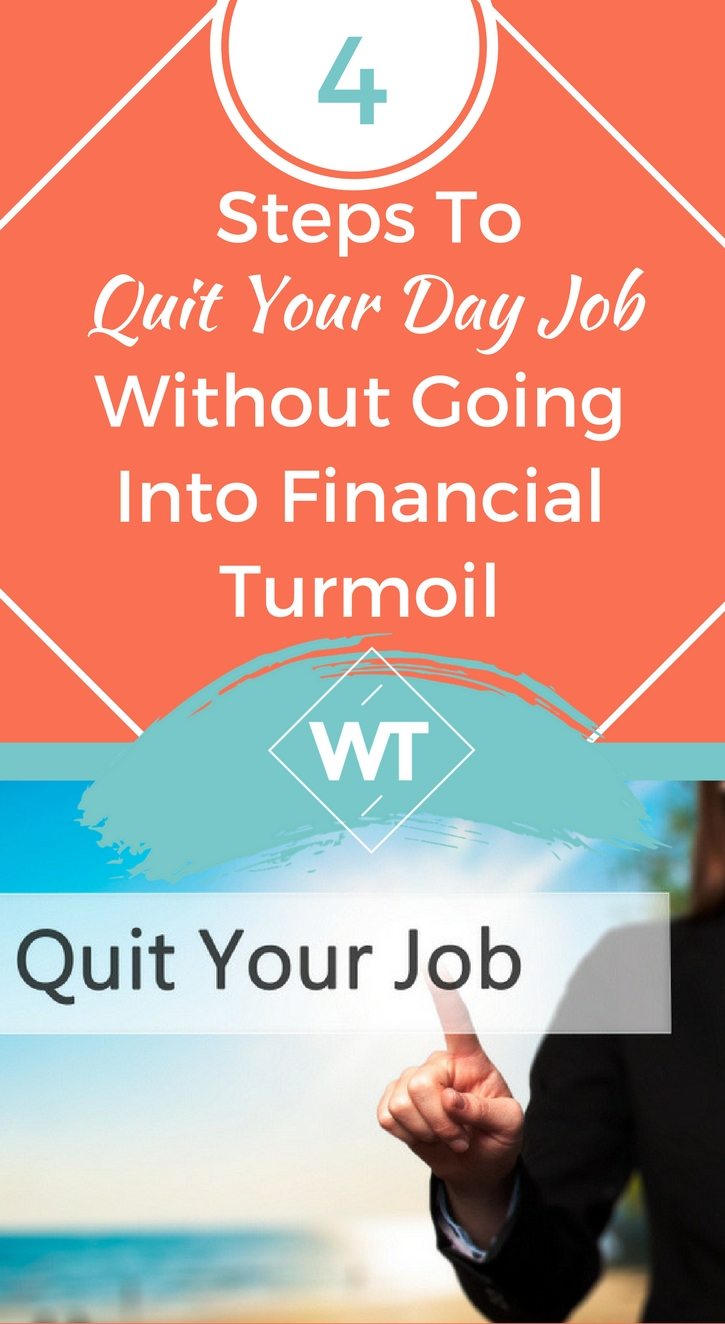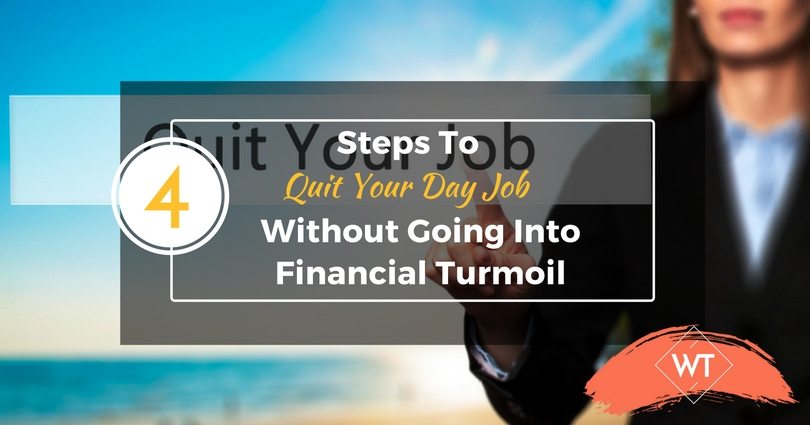4 Steps To Quit Your Day Job Without Going Into Financial Turmoil

There isn’t a day that goes by when I don’t hear about someone who just quit their job to start their own business. It’s not long afterward that many of them are in Facebook groups complaining about how they are in dire straights, went into thousands of dollars of debt to hire a coach who scammed them and now need to figure out how to pay rent.
Part of the reason why this is happening is because being an entrepreneur is the new, hot thing to do. Just look a TV shows like Silicon Valley, success stories like Uber and half the ads on Facebook.
Reminders before you quit your day job to become an entrepreneur
While I’m all about people quitting their jobs to run their businesses (and I help coaching clients through this transition all the time), there’s a right way to do it and a wrong way to do it. The last thing a good business coach wants is for people to quit their day jobs too soon or not know how they are going to pay for food this month.
1. Start with a side hustle
Back in 2010 when I graduated into the Recession and went six months without a job, I quickly learned the importance of finding ways to make my own money outside of a regular paycheck. When I worked in recruiting and interviewed hundreds of people who’d lost their jobs, it was further solidified in my mind that if you’re relying on one job then you’re gambling with your financial future.
That’s why if you want to start a business I suggest you first start with a side hustle. First, because this provides extra cushion for you in case you lose your job. Second, your day job becomes your investor. If you’re going to spend 40 hours a week tied to a desk helping someone else build their empire, you might as well use some of the money you make into building an empire of your own on the side.
2. Have patience
Is it easy to work at a full-time job and run a business on the side? Absolutely not.
I worked a full-time job and made side hustle money on the side for three years before I finally quit. It was difficult and my friends never saw me, but it was worth it when I was finally able to walk out of that office to be my own boss while knowing my bills would still get paid.
There’s one quote that kept me going the entire time I was working seven days a week and questioning if I’d ever make enough money to be able to quit my job:
Do what others won’t today, so you can live the way they can’t tomorrow. (Tweet this)
Fast forward a few years and I’ve got the time and financial freedom a lot of people wish they could have in their own lives. However, it didn’t come without hard work and patience.
3. Learn and refine
The next step in the process of quitting your job is to learn some business lessons and refine your strategy. Because you still have a day job, you have the space to fall on your face and make a bunch of mistakes without it causing you to go into financial ruin.
Use this as a time to experiment: learn, try, fail and refine. By learning what works and what doesn’t—without the added pressure of financial stress—you can ensure that you are creating a business that will be able to support you and your life before you quit.
4. Turn a positive cash flow or reach a breaking point, whichever comes first
Ideally, you’ll want to make sure that your business has at least matched the income from your day job before quitting. If you can reach that point without losing your mind, great. However, we don’t live in a perfect world and sometimes things aren’t always ideal.
I experienced the latter. I quit my job before I’d fully replaced my income. I’d simply reached a breaking point and had to go. However, this did not mean I was irresponsible with my finances. I just did things a little differently by bringing down my living expenses to the point where I could quit my job and live on very little.
I found it much easier and faster to do that than just make more money. Of course, this depends on your situation. I was single, could live with family while I figured stuff out and groceries on a single person’s budget aren’t that expensive.
I also had cash savings in the bank which I fortunately never needed to dip into. Additionally, while I hadn’t yet full replaced my income, I was damn close. So close I could taste it. Every bone in my body knew I could make more money on my own if I only had more time—time which was being taken up by a desk job.
Final thoughts
The journey from working a desk job to becoming my own boss was not easy, but the experience was worth every bit. If you can get rid of the fear and think through the circumstances to make the right choices, nothing can stop you from achieving your entrepreneurial dream!









Leave a Reply